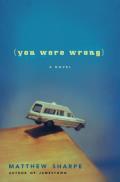
In graduate school I took a class with the French semiotician Michael Riffaterre, who one day told a story about refusing to study Latin as a child. His father was concerned enough about this that he brought a famous local writer over to the house to convince his son of the importance of learning Latin. This is how the eminent man convinced the stubborn child: "My dear boy, if you do not learn Latin, how will you quote?"
I will devote my last blog of the week to answering that question. I'll begin with this remark by Ralph Waldo Emerson, which ended up on the cutting room floor of the post I wrote about the paintings of Michele Araujo, and which I first read in a beautiful and soon-to-be-published book by Lisa Cohen called All We Know:
Every book is a quotation; and every house is a quotation out of all forests and mines and stone quarries; and every man is a quotation from all his ancestors. And this grasping inventor puts all nations under contribution.
And here is the work of a painter I would like to write about when I've had more time to look at his trippy and beguiling paintings and can come up with more than an incipient verbal response. The painter's name is Greg Drasler and if you're in New York this month or next you can see his work at Betty Cunningham Gallery.

And here is my incipient verbal response to this and the other paintings in Drasler's current show: The abundant pleasure in their warm, bright colors, their lovingly meticulous rendering, and their crazy, patterned landscapes distracted me when I first saw them from noticing that while the products and traces of humanity are everywhere in these paintings, there are no people in them. They are, in addition to being sumptuously fun to look at, frighteningly lonely, as if a neutron bomb has destroyed all creaturely life but left this gorgeous infrastructure intact. At the show's opening, I told Drasler about my two responses, first pleasure, then creepiness, and he said, "I frost the problem."
Moving from frosting to lining, here is the philosopher Elizabeth Grosz in an essay that appeared in the spring 2010 issue of differences: a Journal of Feminist Cultural Studies, which I learned about from my erudite friend Christina Crosby, Professor of English at Wesleyan University; it was she who pointed out to me that "lines the world" could refer to sewing a garment:
Philosophy, in adding the concept to the world, lines the world, or the events that comprise the world, with a layer of incorporeality, an excess that makes it more than it presently is, that imbues it with the possibility of being otherwise, the possibility of dispersal and transformation.